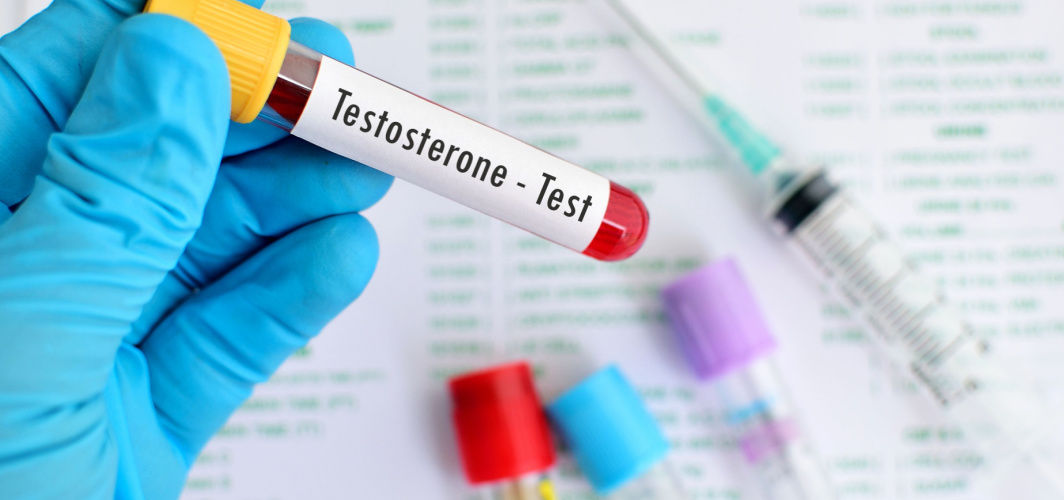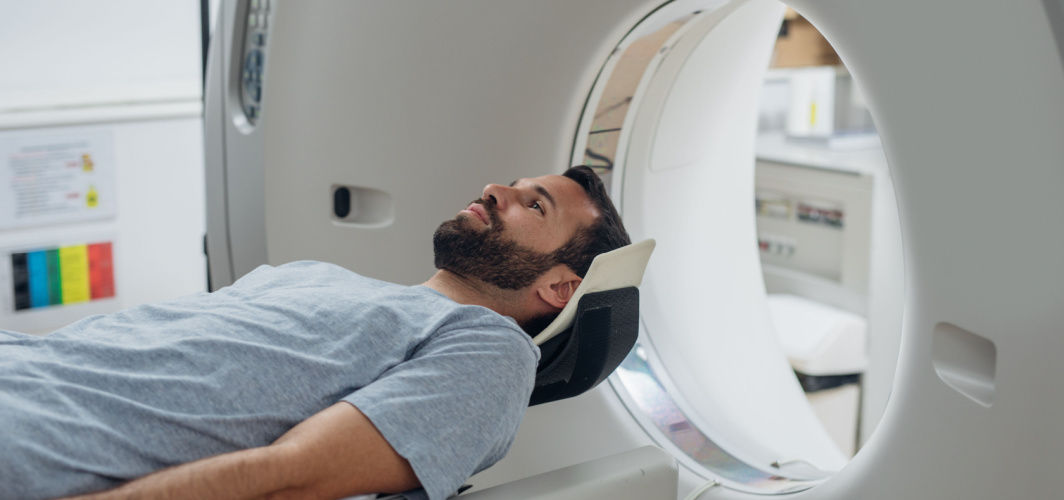General Health
How to Test Testosterone Levels: A Comprehensive Guide for Men's Health
8 min read
By Apollo 24|7, Published on - 06 October 2023
Share this article
0
0 like

Testosterone is a hormone that plays a vital role in various bodily functions, including muscle mass development, bone density maintenance, and sexual function. As men age, their testosterone levels naturally decline, which can lead to various health issues. Therefore, it is essential to regularly test testosterone levels to identify any deficiencies or imbalances and take appropriate interventions. Testing testosterone levels usually involves a testosterone blood test. The testosterone test cost may vary depending on the laboratory and location. In this blog, we will delve into the various methods available for testing testosterone levels, empowering you to make informed decisions about your health and well-being.
What is a Healthy Testosterone Range?
Healthy testosterone levels refer to the range of testosterone hormone levels that are considered normal and optimal for individuals based on their age and sex. It plays a significant role in various bodily functions, including muscle mass, bone density, libido, mood, and overall well-being. For adult males, the healthy testosterone range is approximately 270 to 1070 ng/dL (nanograms per deciliter)
1. Factors Affecting Testosterone Levels
Factors such as age, lifestyle choices, and underlying medical conditions can all impact testosterone levels. Age-related decline is common in men as they get older, but certain lifestyle factors can also contribute to low testosterone levels. They include:
- Obesity
- Poor nutrition
- Lack of exercise
- Chronic stress
2. Why are Testing Testosterone Levels Important?
Regularly testing testosterone levels can help identify any imbalances or deficiencies early on and allow for timely intervention. Some common symptoms of low testosterone levels include:
- Reduced sex drive and erectile dysfunction
- Fatigue and lack of energy
- Decreased muscle mass and strength
- Increased body fat
- Mood changes, including depression or irritability
Types of Testosterone Tests
When it comes to testing testosterone levels, there are a few different methods available. The testosterone test cost may vary depending on factors like the lab and location. The most common types of testosterone tests include:
1. Blood Tests
Testosterone blood tests measure:
- Total Testosterone Levels: It refers to the overall amount of testosterone in your body.
- Free Testosterone Levels: It represents the hormone that is readily available for use.
- Bioavailable Testosterone Levels: It includes both free testosterone and testosterone bound to proteins.
2. Saliva Tests
Saliva tests are another option for testing testosterone levels. These tests are convenient since they can be done at home without the need for a blood draw. However, saliva tests may not be as accurate as blood tests when it comes to measuring total testosterone levels.
3. Urine Tests
Urine tests can also provide information about testosterone levels. These tests measure the ratio of testosterone to epitestosterone in the urine, which can indicate if there is an imbalance in hormone levels.
4. Comparison of Different Testing Methods
When choosing a method to test your testosterone levels, it's important to consider factors such as:
- Convenience: Some testing methods are more convenient than others, depending on your preferences and lifestyle. For instance, a blood test performed at a healthcare facility may be less convenient due to the need for an appointment, travel, and potential wait times.
- Accuracy: The accuracy of a testosterone test is crucial because it ensures that you receive reliable and trustworthy results. Inaccurate results can lead to incorrect diagnoses or treatment decisions.
Discuss with your healthcare provider which method is best suited for you based on your specific needs and circumstances.
Preparing for a Testosterone Test
Testing testosterone levels is an important step in evaluating hormone balance and overall health. Whether you're experiencing low testosterone symptoms, a testosterone test can provide valuable insights.
1. When to Get Tested?
When it comes to testing testosterone levels, there are a few key factors to consider. First and foremost, knowing when to get tested is crucial.
Testosterone levels naturally decline as you age, so it's a good idea to get tested if you're experiencing symptoms such as a decrease in libido, fatigue, or mood changes.
2. Factors to Consider Before the Test
Before getting tested, it's important to consider any medications you may be taking. Certain medications can affect testosterone levels, so it's best to discuss this with your healthcare provider beforehand. They include:
- Corticosteroids
- Opioids
- Antidepressants
Additionally, fasting may be required before the test, as food intake can impact hormone levels.
How to Interpret Testosterone Test Results?
When it comes to testing testosterone levels, there are several factors to consider. To begin with, it's important to understand what the results mean and how they are interpreted. Here are some key points to keep in mind:
1. Normal vs. Low Testosterone Levels
Testosterone levels can vary widely among individuals, but generally, a normal range for adult males is between 300 and 1,000 nanograms per deciliter (ng/dL). Anything below this range may indicate low testosterone levels.
2. Understanding the Reference Ranges
Reference ranges may differ slightly between laboratories, so it's important to interpret the results based on the specific reference range provided by your healthcare provider.
3. Factors that can Affect Test Results
Stress and time of day can influence testosterone levels. When you're stressed, your body produces cortisol, a hormone that counteracts the effects of testosterone. This can lead to lower testosterone levels. Additionally, chronic stress can disrupt the endocrine system, which regulates hormone production, potentially causing long-term imbalances.
Testosterone levels in the body can vary throughout the day, following a diurnal (daily) rhythm. Testosterone levels are generally at their peak in the morning, providing a more accurate representation of your daily hormone levels. By testing in the morning, you minimise the influence of daily fluctuations, making it easier to establish a consistent baseline for comparison.
Natural Ways to Boost Testosterone Levels
To naturally boost your testosterone levels, consider incorporating these lifestyle factors into your routine:
1. Foods for Improving Testosterone Levels
Certain foods are known to enhance testosterone production, including:
- Lean proteins like chicken and fish
- Cruciferous vegetables like broccoli and cabbage
- Nuts and seeds like almonds and sunflower seeds
- Foods rich in zinc like oysters and beef
2. Exercise for Improving Testosterone Levels
Regular physical activity, especially strength training exercises like weightlifting, can help stimulate testosterone production and weight management. Aim for at least 150 minutes of moderate-intensity aerobic activity or 75 minutes of vigorous-intensity exercise per week.
3. Quality Sleep for Hormonal Balance
Poor sleep can disrupt hormonal balance, including testosterone production. Aim for around 7-9 hours of quality sleep every night to support optimal hormone function.
Types of Hormone Replacement Therapy (HRT) for Low Testosterone Levels
Hormone replacement therapy (HRT) is a medical approach used to address low testosterone levels in individuals, a condition known as hypogonadism. HRT aims to restore testosterone levels to a healthy range and alleviate the associated symptoms. Before embarking on HRT, it's essential to understand the available types of HRT, their benefits, and the associated risks.
1. Testosterone Replacement Therapy (TRT)
TRT is the most common form of HRT for low testosterone. It involves the administration of synthetic testosterone, typically through methods such as injections, gels, patches, or implantable pellets. It can effectively raise testosterone levels, leading to improved energy, mood, libido, muscle mass, and bone density. Many individuals experience a significant improvement in their overall quality of life.
While TRT is generally safe and well-tolerated, it's not without potential risks. Possible side effects include:
- Acne
- Fluid retention
- Mood swings
- An increase in red blood cell production (which may necessitate monitoring)
Long-term use of TRT may have unknown effects, and its safety in certain medical conditions, such as prostate cancer, requires careful consideration.
2. Human Chorionic Gonadotropin (hCG)
hCG therapy can stimulate the body's testosterone production, making it a potential option for those concerned about fertility issues. It is sometimes used in combination with TRT. Side effects may include:
- Acne
- Mood swings
- In rare cases an increased risk of blood clots
3. Clomiphene Citrate (Clomid)
Clomiphene citrate can stimulate the release of hormones that trigger the testes to produce more testosterone, making it an alternative for those seeking to avoid exogenous testosterone. It may also have potential fertility benefits. Side effects can include:
- Mood swings
- Hot flashes
- Vision disturbances
4. Consultation with a Healthcare Professional
Before beginning any form of HRT, it is imperative to consult with a qualified healthcare professional, preferably an endocrinologist or urologist with expertise in hormone management. The consultation will involve a thorough assessment of your symptoms, medical history, and blood tests to confirm low testosterone levels. Your healthcare provider will discuss the various HRT options, their benefits, and potential risks, helping you make an informed decision tailored to your specific needs and circumstances.
Conclusion
In conclusion, testing testosterone levels is crucial for men's overall health. By understanding your testosterone levels, you can address any imbalances and seek appropriate treatment if necessary. Remember to consult a healthcare professional for accurate interpretation and guidance. Take a holistic approach towards men's health by maintaining a healthy lifestyle, exercising regularly, managing stress, and seeking medical advice when needed. Your well-being matters, so don't hesitate to take proactive steps towards achieving optimal health.
General Health
Frequently Asked Questions
How long does it take to get testosterone blood test results?
How long does it take to get testosterone blood test results?
What is the average price of a testosterone test in India?
What is the average price of a testosterone test in India?
Can I test my testosterone levels at home?
Can I test my testosterone levels at home?
Can I take my regular medications before the testosterone blood test?
Can I take my regular medications before the testosterone blood test?
Are there any preparations I need to make before getting my testosterone levels tested?
Are there any preparations I need to make before getting my testosterone levels tested?
Leave Comment
Recommended for you

General Health
Zero Calorie Sweeteners May Cause Heart Attack & Stroke!
Artificial sugar substitutes have now become a common way of reducing sugar and calorie intake. However, in recent research, it has been seen that people with heart diseases like diabetes are more likely to experience a heart attack if their blood has high concentrations of a sugar substitute popularly known as erythritol.

General Health
The Role of MRI Scans in Detecting and Diagnosing Cancer
Discover the pivotal role of MRI scans in early cancer detection and diagnosis, offering insights for improved patient care.

General Health
Is Blood Cancer Curable Or Not?
Discover the latest insights on blood cancer, its curability, diverse types, diagnostic approaches, and comprehensive care strategies.
Subscribe
Sign up for our free Health Library Daily Newsletter
Get doctor-approved health tips, news, and more.
Visual Stories

Could There Be More to Your Snore?
Tap to continue exploring
Recommended for you

General Health
Zero Calorie Sweeteners May Cause Heart Attack & Stroke!
Artificial sugar substitutes have now become a common way of reducing sugar and calorie intake. However, in recent research, it has been seen that people with heart diseases like diabetes are more likely to experience a heart attack if their blood has high concentrations of a sugar substitute popularly known as erythritol.

General Health
The Role of MRI Scans in Detecting and Diagnosing Cancer
Discover the pivotal role of MRI scans in early cancer detection and diagnosis, offering insights for improved patient care.

General Health
Is Blood Cancer Curable Or Not?
Discover the latest insights on blood cancer, its curability, diverse types, diagnostic approaches, and comprehensive care strategies.